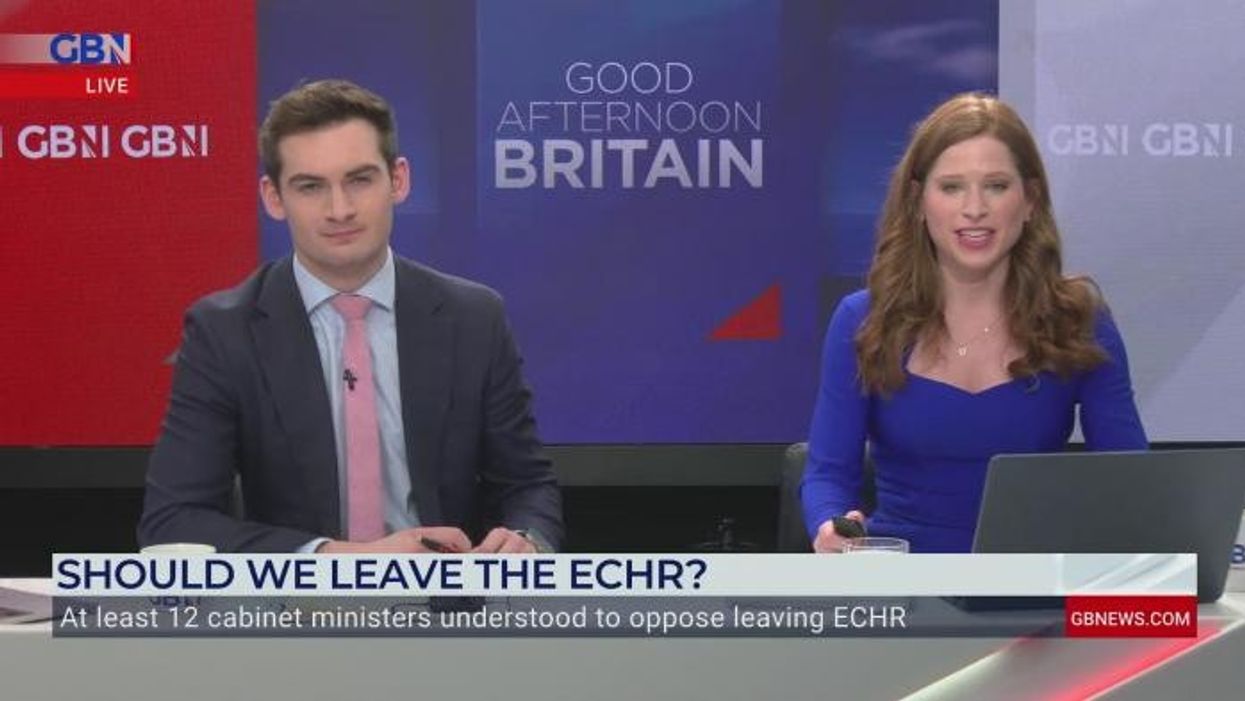EU under imminent threat from issue even bigger than Brexit - analysis by Jack Walters

GB News dissects whether frustrations held by member states about Brussels' overreach could pose a more significant threat than the UK’s departure from the European Union
Don't Miss
Most Read
Latest
The decision to vote for Brexit in 2016 was seen as a fatal wound on the European Union.
In reality, 17.4 million Leavers prevailing over 16.1 million Remainers should be considered as nothing more than a flesh-wound.
Yearnings for Frexit, Italeave or Nethermind have so far failed to materialise.
Some Leave campaigners, including GB News’ own Nigel Farage, at the time expected a domino effect of member states following the UK out the door.
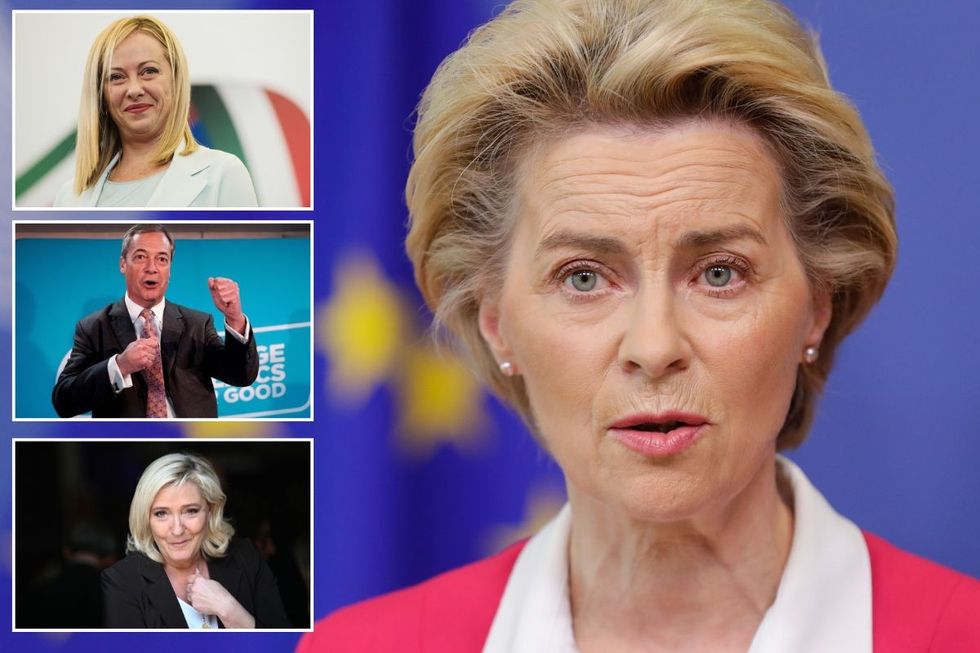
Ursula von der Leyen with insets of Marine Le Pen, Nigel Farage and Giorgia Meloni
|GETTY
However, for a variety of reasons, including economic uncertainty and the threat from Russia, the prospect of the 27 member state club being reduced seems further away now than it did in 2016.
Despite an overall pull together, unity across the bloc is not only diminishing by facing a significant constitutional threat.
Continental Eurosceptics, unlike those on this side of the Channel, don’t want to leave the bloc.
For many, such as hardliners in Poland and Hungary, Brussels gives back too much in financial retribution to warrant complete departure from the single market, customs union and European Court of Justice.
And for the ‘frugal four’ and ‘big three’ there is often a romantic notion about playing a leading role in events across the continent.
Despite the appetite for severing ties with the EU diminishing, the upcoming elections to both Brussels and Strasbourg pose a serious threat to the Eurocrat establishment.
Illegal immigration, pooling of sovereignty and questionable events in Brussels have all enhanced calls among European Eurosceptics for a new type of Europe.
In the words of now-Foreign Secretary Lord David Cameron, “remain and reform” is the preferred option.
LATEST DEVELOPMENTS: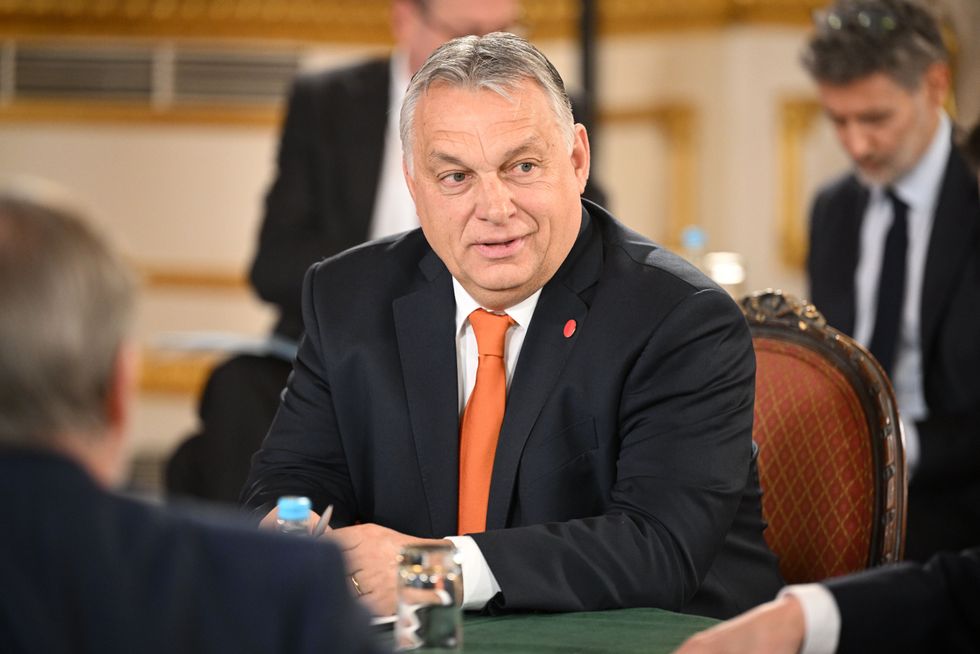
Hungarian leader Viktor Orban fired back against the EU's migration plan
| PAPoland and Hungary are perhaps the first two countries to consider when it comes to plans to alter the EU’s constitution.
Populist leader Viktor Orban and Europhile-turned-unassuming-Eurosceptic Donald Tusk dealt Brussels unity a major blow this month by coming out against measures to curb illegal immigration.
The pair, unlikely allies by most political metrics, joined forces after MEPs voted by 322 to 266 in favour of the plan.
Orban said: "The Migration Pact is another nail in the coffin of the European Union. Unity is dead, secure borders are no more.
"Hungary will never give in to the mass migration frenzy! We need a change in Brussels in order to StopMigration!"
Tusk added: "We will find … ways so that even if this pact enters into force in more or less the shape in which it was voted on today in the Parliament, we will protect Poland from the relocation mechanism."
Poland’s position is made even stronger by President Andrzej Duda.
Duda, who claims he is a “Euro-realist” rather than a Eurosceptic, rallied against EU judges and sought to embolden his power by snubbing Brussels’ overreach into the Polish judiciary.
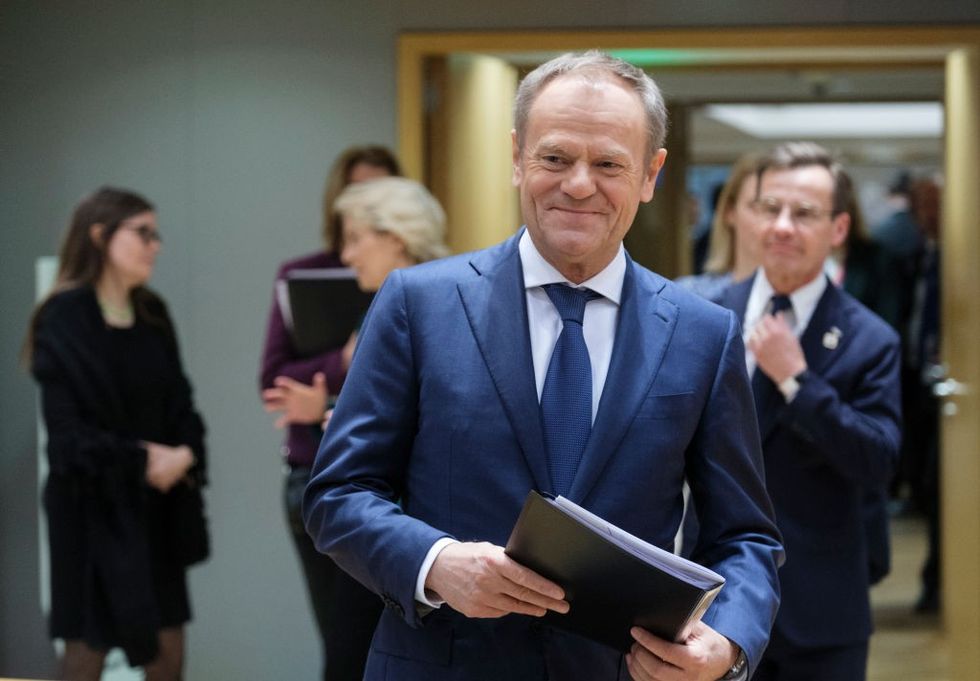 Polish PM Donald Tusk | Getty
Polish PM Donald Tusk | GettyThe situation led the European Commission to take Warsaw to court last year, with legal experts dubbing the situation a “legal Polexit”.
However, when it comes down to it, it seems highly unlikely Duda would ever go as far to drag the Eastern European nation out of the bloc.
Shortly after the Brexit vote, Duda said: “We are a European Union member. And let me emphasise strongly, for us, for a very decisive majority of the Polish people, it is a great value.”
He added: “We have a crisis in the form of Brexit, a crisis in the form of a wave of refugees, we have the financial crisis still reverberating and these are facts which basically no one within the EU is disputing.”
And now Hungary is predicted to return 12 Fidesz MEPs and two Christian Democratic People’s Party MEP, up by one compared to 2019.
Poland’s election race is admittedly far more complicated.
However, with 16 Law & Justice MEPs forecast to return to Brussels, the EU still faces a significant threat from the populist right.
France is also slowly emerging as a bastion of populism and ever-increasingly Euroscepticism.
 Jordan Bardella (left) and Marine Le Pen (right) | GETTY
Jordan Bardella (left) and Marine Le Pen (right) | GETTYMarine Le Pen’s National Rally looks set to smash Emmanuel Macron in the upcoming EU Parliamentary Elections.
Europe Elects is forecasting the populist party will win 27 seats, up from 23 in 2019.
Macron’s Renaissance is falling backwards, with MEPs supportive of the French President dropping from 23 to just 17.
Le Pen and her right-hand man Jordan Bardella have been outspoken in their criticisms of the EU.
The National Rally’s figurehead underwent a significant Damascene conversion as she watered down calls for Frexit and quitting the Euro with demands for a looser alliance of “free and sovereign nations”.
Le Pen’s views appear ever so slightly convoluted, with support for EU trade deals caveated by concern about France’s agriculture sector.
She also has views on free movement at odds with Brussels bureaucrats, having expressed a desire to limit the ability to just EU passport holders rather than residents.
Le Pen is also keen to “stop migrants from outside Europe from using the jurisprudence of the European Court of Human Rights to avoid deportation”.
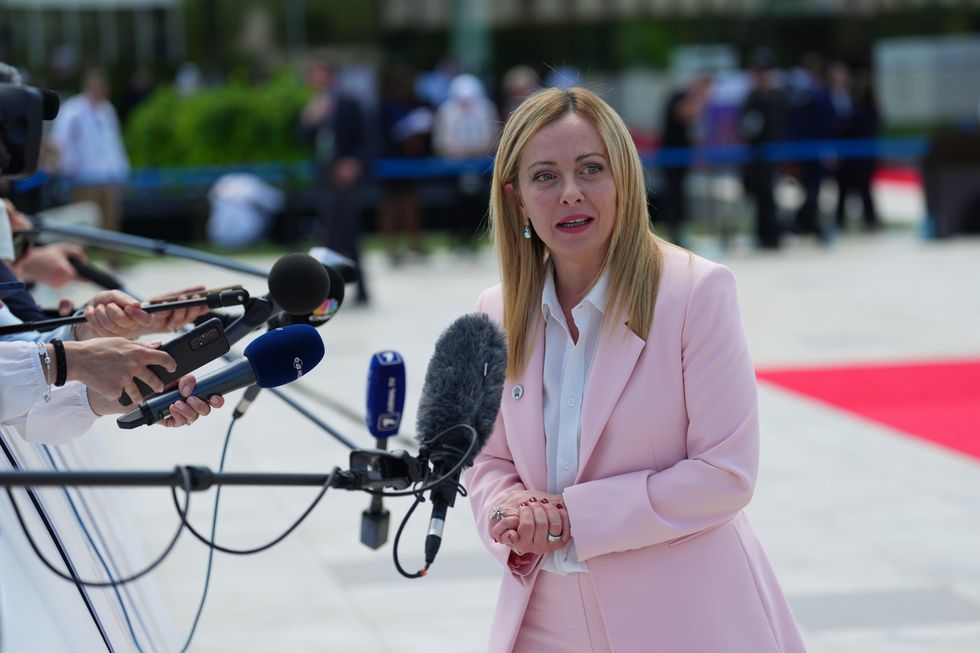
Italian Prime Minister Giorgia Meloni
| PABardella has reaffirmed National Rally’s commitment to the bloc, insisting: “You don’t walk away from the game when you’re winning.”
However, the baby-faced populist strongly opposes further EU integration and hopes to water down Brussels’ green agenda.
Germany has for decades been considered the cornerstone of the EU, with the largest economy and largest number of MEPs.
However, scratch beneath the surface and it is far from rosey in the Land of Poets and Thinkers.
Agricultural protests have coincided with a surge in support for the populist Alternative for Germany (AFD).
The AFD is expected to go from just 11 seats to 16, putting German populists in joint-third and breathing down the neck of Olaf Scholz’s SDP.
Alice Weidel, the AFD’s leader, seems the most receptive to Germany leaving the EU.
She said: “It’s a model for Germany, that one can make a sovereign decision like that.”
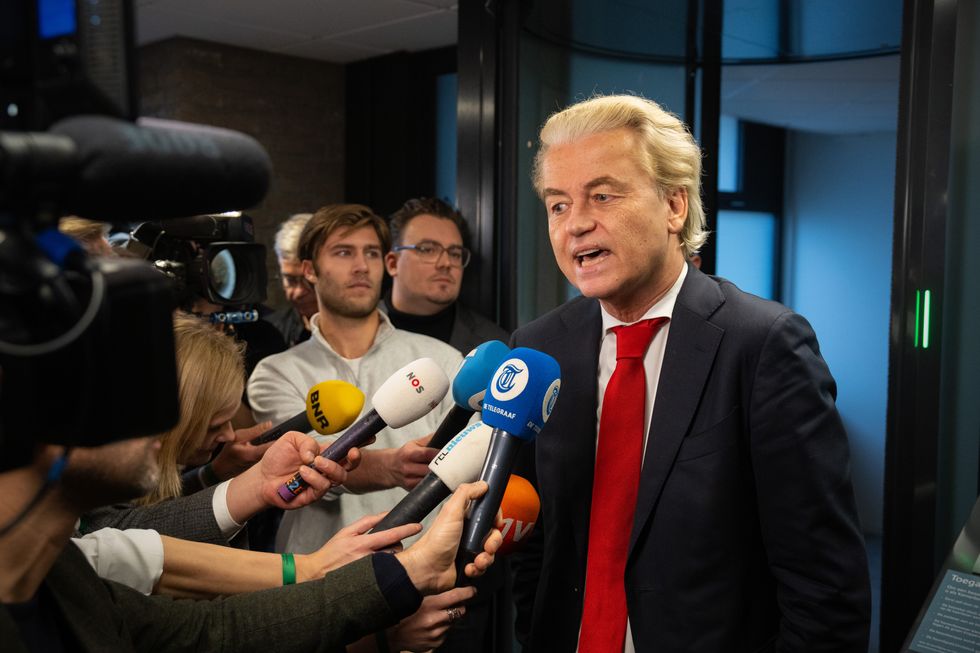 Geert Wilders has said he won't be Dutch PM | Getty
Geert Wilders has said he won't be Dutch PM | GettyShe said: “It’s a model for Germany, that one can make a sovereign decision like that.”
However, undoubtedly aware of the lack of salience behind the EU question in Germany, Weidel argued such a move was only on the card if “reform isn’t possible”.
Attempts to bring about such a change, including reducing the powers of the “unelected” European Commission, could be fought hard and seen as a direct challenge to the bloc’s established model.
Such a position was echoed even more strongly by the AFD’s Brussels leader Maximilian Krah.
Speaking at the AFD’s congress last year, the 47-year-old told delegates: “We want 80 per cent less Europe and more national self-government.”
He added: “The Europe of the future must be a Europe of fatherlands and not a Europe of bureaucrats.”
And Italy is yet another founding EU member pivoting towards populism.
Girogia Meloni’s Brothers of Italy will likely leap forward, with the right-wing party forecast to jump from fifth to first as MEPs soared from just five to 25.
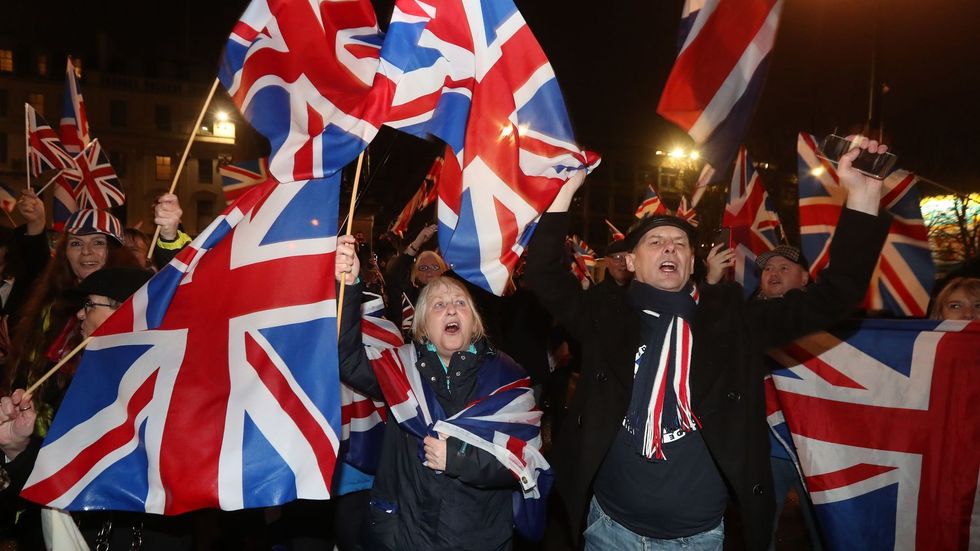 Brexiteers were celebrating when Britain officially left the EU in January 2020 | PA
Brexiteers were celebrating when Britain officially left the EU in January 2020 | PAMeloni appeared to pull directly from Le Pen’s playbook by mellowing her position and embracing the pillars of EU membership.
She argued: “We saw that an alternative was possible, that individual member states could come together on a voluntary basis in the spirit of Christian solidarity.”
However, Meloni also criticised Brussels for looking to “humiliate” the British people after “freely” choosing to leave the bloc.
Italy’s populism varies somewhat from what has been displayed in Poland and Hungary, with Meloni supporting efforts to redistribute asylum seekers across member states.
Austria and the Netherlands, leading figures in the so-called “frugal four”, will also likely see a boost for Eurosceptic populists.
Europe Elects is forecasting Austria’s Freedom Party to go from three to six MEPs, with Geert Wilders’ People’s Party for Freedom and Democracy jumping from four to nine.
London’s commentariat has obsessed about the UK’s decision to leave the EU, with Farage’s appearance at the National Conservatives seemingly bringing into question Brussels’ perception of Britain yet again.
It might have been emblematic of the EU’s loathing of the UK’s decision to leave the bloc but Brussels will undoubtedly take note of the number of leading continental populists attending the event.
If anything, the shutdown debacle should remind the EU just one thing; its greatest enemies aren’t operating on this side of the Channel, they come from within.
And it could all become even worse if, as the UK found during torrid renegotiations in 2016, populists conclude the bloc is damaged beyond repair.


